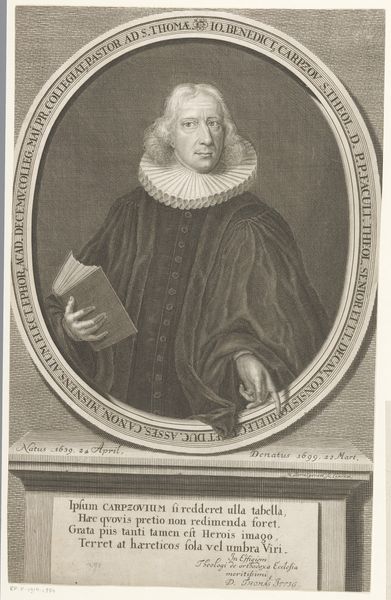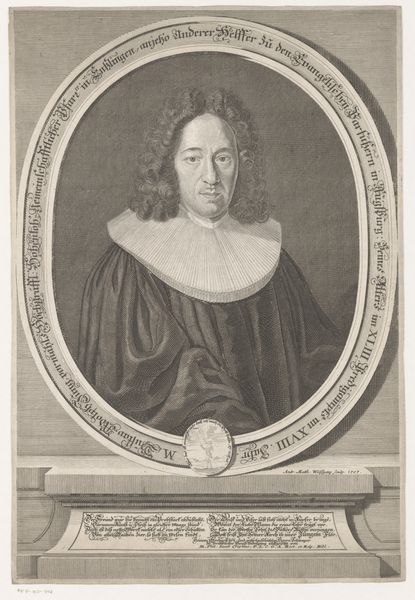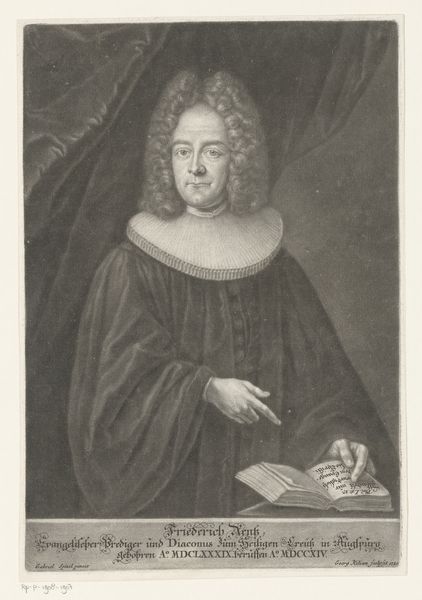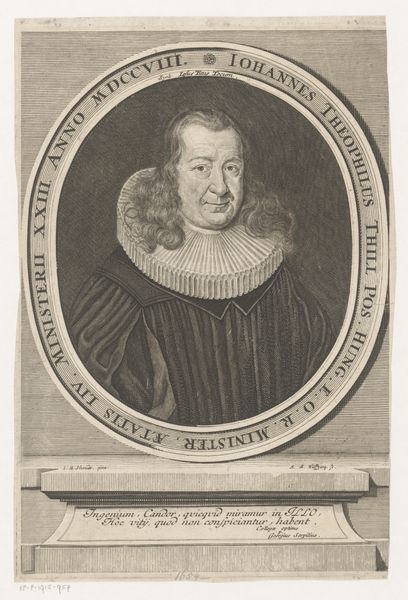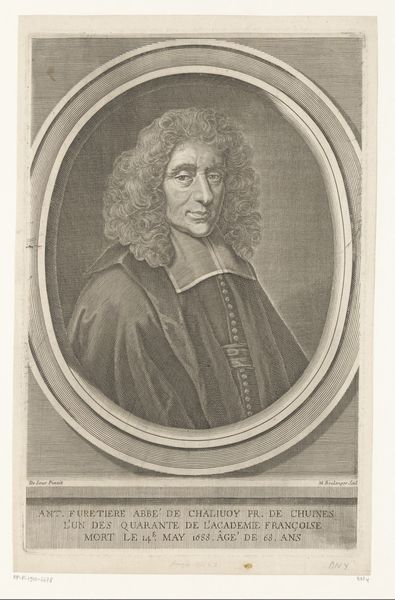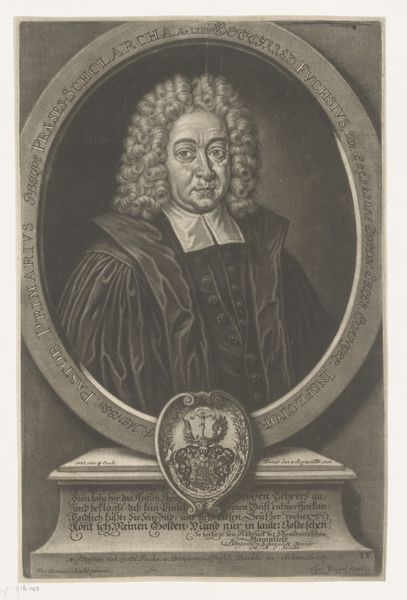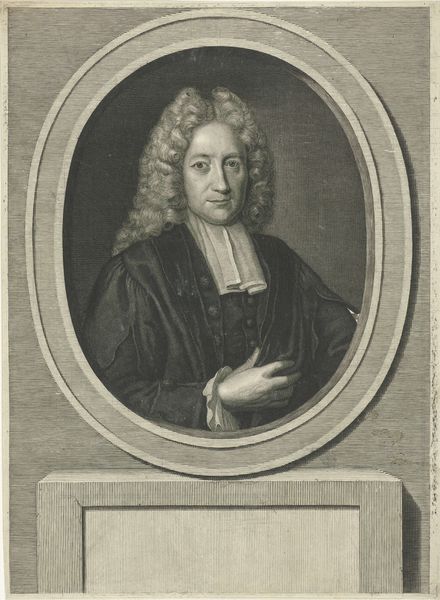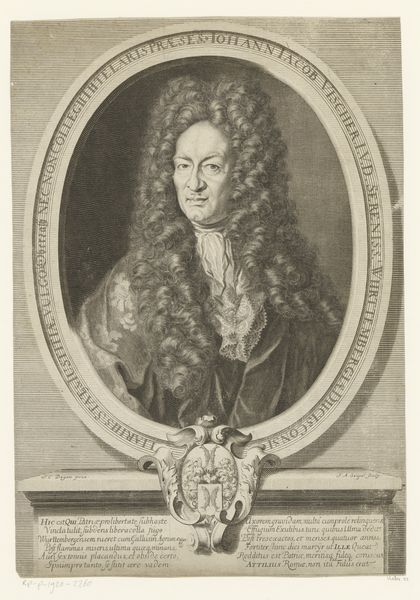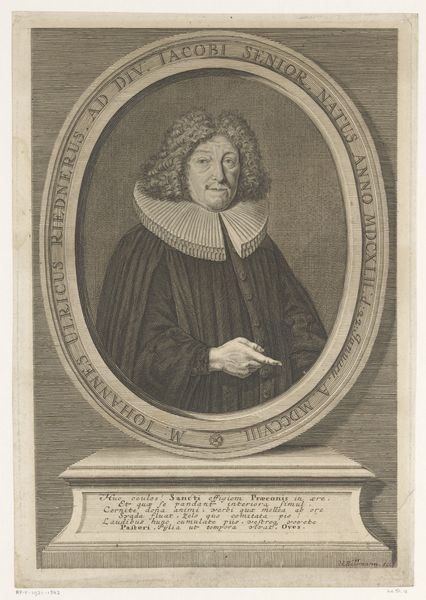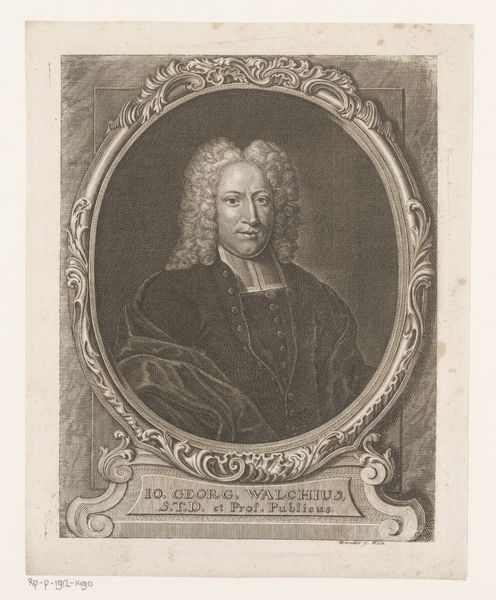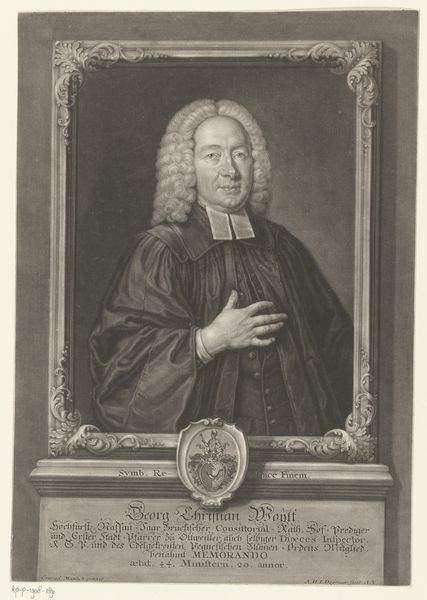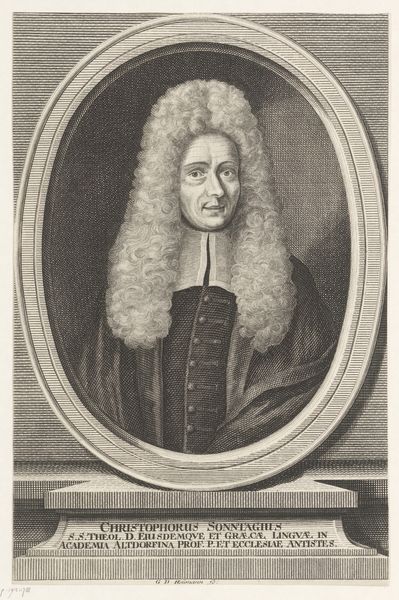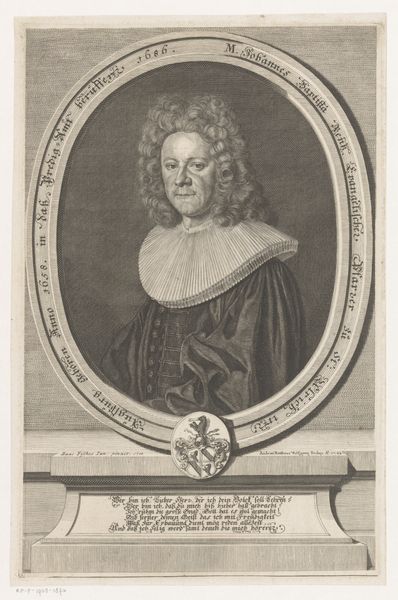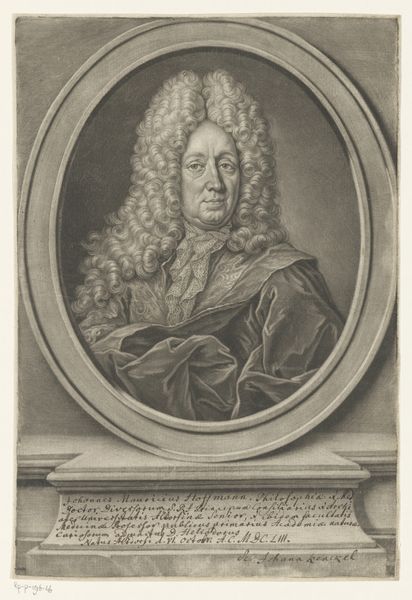
print, engraving
#
portrait
#
baroque
# print
#
engraving
Dimensions: height 374 mm, width 253 mm
Copyright: Rijks Museum: Open Domain
Editor: Here we have Andreas Matthäus Wolfgang’s portrait of Gustav Adolph Jung, likely from sometime between 1700 and 1737, an engraving printed on paper. It looks so formal, very Baroque. What can you tell me about it? Curator: What immediately strikes me is the material reality of the print itself. Engraving involves a skilled labor process, transferring an image through precise cuts into a metal plate, usually copper. This plate then serves as the printing matrix, pressing ink onto paper. How does the layering and dissemination of these images shape its meaning, impact its accessibility? Editor: I guess I hadn't really considered the...mechanics of it. The description below the portrait looks like the sitter, Jung, was a preacher in Augsburg? Curator: Precisely. Considering this context, how does the act of reproducing and distributing Jung's image challenge traditional boundaries of religious iconography? This isn't an oil painting made for a wealthy patron. These prints made his likeness broadly accessible; How does that distribution alter Jung's power or authority as a religious figure, by being readily available for purchase or display in various contexts? Editor: So it's like, instead of just existing in a church, his image is everywhere? Kinda democratizing, in a way? I hadn't thought about the printing press in this way before! Curator: Yes, how does the reproducibility affect the original context or perceived value? Each print serves as a testament to labour, capital, and, fundamentally, power relations in Baroque society. That inscription certainly adds another layer, connecting the man to his trade and congregation. We see the process of printmaking not just as a technique, but as an essential component that adds new layers to what and how we perceive. Editor: That is really insightful. Thank you for that explanation!
Comments
No comments
Be the first to comment and join the conversation on the ultimate creative platform.
